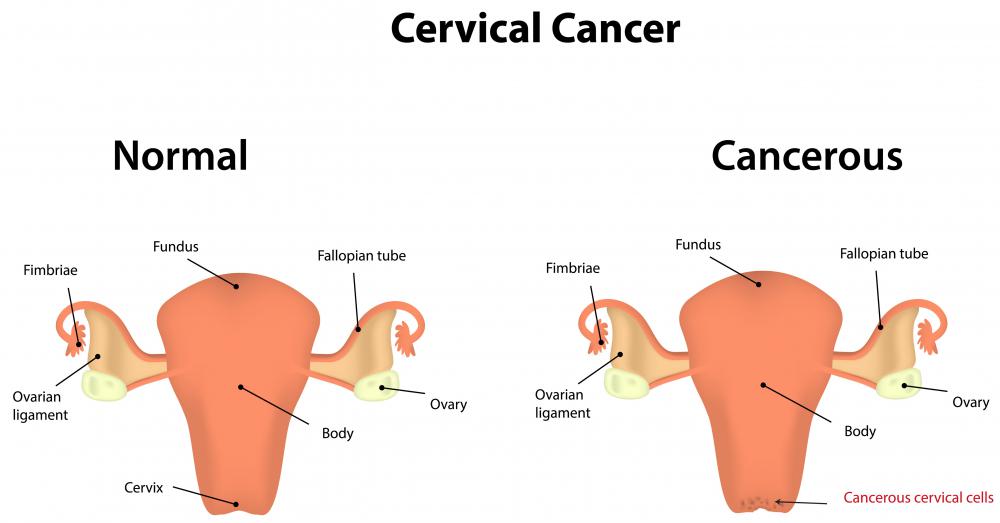At TheHealthBoard, we're committed to delivering accurate, trustworthy information. Our expert-authored content is rigorously fact-checked and sourced from credible authorities. Discover how we uphold the highest standards in providing you with reliable knowledge.
What Should I Know About Pregnancy After a LEEP Procedure?
A loop electrosurgical excision procedure (LEEP) is often used to treat cervical dysplasia. Less often, it is used as a treatment for the early stages of cervical cancer as well as for diagnosis of the disease. Though the technique can be helpful in these situations, women may have some concerns about pregnancy after a LEEP procedure.
As part of the LEEP procedure, a loop is used in clearing the cervix of abnormal or precancerous cells. This loop has electric current. After the procedure, there may be effects that may make it a bit difficult to get pregnant or sustain a pregnancy.

One of the risks of pregnancy after a LEEP procedure is cervical incompetence. The procedure may lead to problems that make it difficult or impossible for the cervix to stay closed while a woman is pregnant. When the cervix is incompetent, a woman is more likely to suffer from a miscarriage, and if she does not have a miscarriage, she may have to deal with preterm labor. There is a procedure called a cervical cerclage that can be used to stitch the cervix closed. However, it is not 100% effective.

Cervical stenosis is another problem that could affect a pregnancy. This condition causes the cervix to tighten and narrow too much. When this occurs, it may be very hard for the cervix to dilate properly during labor. Since cervical dilation is absolutely necessary for a vaginal delivery, this can be a serious problem. However, it is possible to opt for a cesarean section to circumvent problems with dilation.

Perhaps the most heartbreaking problem with pregnancy after a LEEP procedure is sterility. Fortunately, this is a rare effect, but there is a small chance that a woman will become sterile following the procedure. Female sterility means a woman is unable to conceive a child of her own through sexual intercourse.
It is important to note that pregnancy after a LEEP procedure may proceed as normal in some women. How and whether a pregnancy is affected by the technique depends on a variety of factors, including the amount of cervical tissue the procedure removed and whether or not a woman has had more than one LEEP procedure. It is also important to note that LEEP complications that affect pregnancy are not common. Usually, complications are limited to about 1 or 2% of all women who have had the procedure. There is an elevated risk of preterm labor following the treatment, but most women are able to have normal pregnancies and deliveries.

The best way to find out about pregnancy after a LEEP procedure is by talking to a medical professional. For example, it is smart to discuss possible complications before you have a LEEP procedure and before you are planning to become pregnant. Ask your healthcare provider how the procedure might affect a future pregnancy and whether or not it is the only option you have for treatment. Also ask how long you should expect it to take before your cervix has fully recovered and the length of time it is wise to wait before you become pregnant.
AS FEATURED ON:
AS FEATURED ON:
















Discussion Comments
Knowledge is the best defense. This is one of those times when a patient has to be her own best advocate. She has to ask these questions in order to make family planning decisions in the future.
I have a friend who had a LEEP procedure and she somehow missed the part about cervical incompetency. She nearly lost her baby. Her OB/GYN did the cerclage procedure and she carried her daughter to term, but if she had known more about the LEEP procedure to start with, she probably would have been more tuned in to what was going on. Fortunately, her OB was looking out for her and found the incompetent cervix issue during an exam. It was a close shave, though.
Post your comments